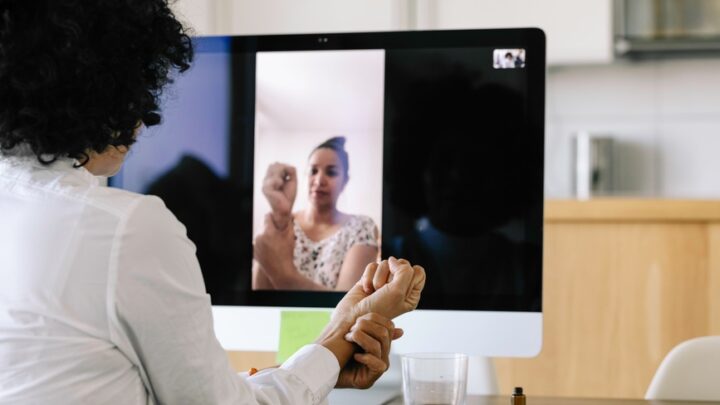
Extensive research consistently shows that psychotherapy and mental health counselling are effective for promoting and improving overall health outcomes. Poor mental health can directly impact physical health and chronic physical conditions, potentially cause an individual to stop treatment, adopt an ineffectual diet, become less physically active, or increase risky behaviors like smoking, general recklessness, or self-harm. Conversely, physical conditions can negatively affect (directly or indirectly) people’s mental health, worsening symptoms of stress, depression, anxiety, isolation, and loneliness.
Ultimately, improving access to high quality therapy has a major impact on the patient’s physical and mental health, and teletherapy is a big part of that. Research shows that online therapy delivered via video communication is a highly comparable alternative to traditional face-to-face therapy for both individuals and groups (including couples and families). Due to its relevance, the American Psychological Association (APA), National Association of Social Workers (NASW), and American Counseling Association (ACA) have all incorporated online therapy into their ethical standards.
Teletherapy: Inclusion and Accessibility
Teletherapy can be particularly impactful for people dealing with compromised immune systems, reduced mobility, or other serious health conditions including cancer, stroke, or peripartum issues that limit their ability to travel safely. Primary care physicians, registered nurses, gynecologists, oncologists, cardiologists, and other healthcare professionals should encourage their patients who present with mental health symptoms to seek help from online therapy or virtual counselling.
Limited access to therapy based on location can also be addressed under a widespread normalization of teletherapy. Individuals in rural communities who may not be able to locate or reach a qualified therapist, and people with inflexible careers or caregiving obligations now have expanded options to address their mental health concerns.
Finally, teletherapy opens up more choices when it comes time to select a provider. For instance, someone with a physical health condition may be able to find a specialized provider via telehealth who would not be available to them in person, due to location. Without the typical location limitations of in-person therapy, the client could find a provider who focuses on treating mental health factors related to their specific health illness or issue. That therapist would better understand the nuances of the condition, how it triggers or affects mental health symptoms, coping mechanisms, and how symptoms can lead to predictable physical effects. With teletherapy, people can also gain access to therapists who specialize in treating specific underserved communities, such as BIPOC, LGBTQIA, and those related to faith or religion.
Despite its growing popularity, teletherapy may not be the right fit for everyone. Some patients or practitioners require or prefer an in-person experience. Whether online therapy is used exclusively, or as a gateway or supplement to in-person treatment, its effectiveness stems from its convenience and ability to increase accessibility and inclusion. It’s safe to say, teletherapy is here to stay.
If you’re interested in referring your patients to teletherapy, Choosing Therapy leverages real-time therapist availability and convenient online client onboarding. They also perform concierge client-therapist matching with help from Client Navigators (licensed mental health professionals) who help prospective clients find the right practitioner. Choosing Therapy is increasing access to mental health information and professionals, making it easier to locate and contact a licensed therapist and begin life-changing therapy.

Dr. Melissa Boudin is a Clinical Psychologist with over a decade of experience, currently serving as the Clinical Director for Choosing Therapy, an online therapy platform that is making psychotherapy more inclusive and accessible. Previously, Dr. Melissa Boudin has been in private practice as well as in community mental health and preventative care.














